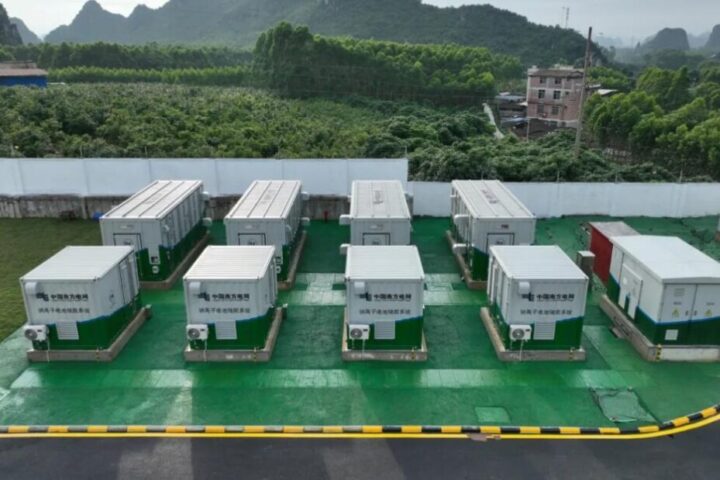A cyber security investigation is being launched by China’s Cyber Security Watchdog, the Cyber Security Review Office, into US microchip giant Micron Technology to safeguard national security. The aim of the probe, the first ever into a foreign company, is to safeguard key information infrastructure, supply chain security, & prevent cyber security risks due to problematic products. On national security grounds, the Chinese government has for the first time targeted a US semiconductor company as Washington tightens export controls on advanced chip products & equipment to China.
Micron has had a difficult relationship with China recently, with domestic memory chip makers, including Yangtze Memory Technologies Co., expanding operations. The main product of Micron, global dynamic random-access memory (DRAM), accounts for nearly three quarters of its sales. Micron is being investigated by the Chinese government due to potential security risks caused by hidden product problems in chips sold by Micron in China.
There is full cooperation from Micron with the investigation, as Micron is committed to conducting all business with uncompromising integrity. A statement by the CAC bears similarities to allegations made by the US against Chinese telecom equipment vendor Huawei, warning of equipment that could be remotely co-opted to spy on foreign nations. Profits at Huawei slipped 69% in 2022 on $ 92 billion in revenue, with China accounting for over 10% of its total sales.
Shenzhen Long Sys. is one of the clients of Micron in China, which bought 3.1 billion yuan’s worth of chips from Micron in 2021. Micron has been seen as a major lobbying force behind the US government’s moves to sanction Chinese businesses, including YMTC, Nichols was added to the US entity list last year. Micron has previously warned of the risks of being excluded from the China market, which could restrict its growth.
Last year, Micron closed its DRAM design operation in Shanghai & relocated some of the 150 Chinese engineers to the US & India. Micron reported a 53% year-on-year fall in revenue for the quarter ending March & forecasts that its revenue would tumble nearly 60% in the current quarter. An investigation into Micron by China could be viewed as retaliatory for US efforts to snuff out Chinese competition in the semiconductor & telecommunications spaces.
A cyber security investigation is being launched by China’s Cyber Security Watchdog, the Cyber Security Review Office, into US memory Chip giant Micron Technology to safeguard national security. The aim of the probe, the first ever into a foreign company, is to safeguard key information infrastructure, supply chain security, & prevent cyber security risks due to problematic products. On national security grounds, the Chinese government has for the first time targeted a US semiconductor company as Washington tightens export controls on advanced chip products & equipment to China. Micron has had a difficult relationship with China recently, with domestic memory chip makers, including Yangtze Memory Technologies Co., expanding operations.
The main product of Micron, global dynamic random-access memory (DRAM), accounts for nearly three quarters of its sales. Micron is being investigated by the Chinese government due to potential security risks caused by hidden product problems in chips sold by Micron in China. There is full cooperation from Micron with the investigation, as Micron is committed to conducting all business with uncompromising integrity. A statement by the CAC bears similarities to allegations made by the US against Chinese telecom equipment vendor Huawei, warning of equipment that could be remotely co-opted to spy on foreign nations.
Profits at Huawei slipped 69% in 2022 on $ 92 billion in revenue, with China accounting for over 10% of its total sales. Shenzhen Long Sys. is one of the clients of Micron in China, which bought 3.1 billion yuan’s worth of chips from Micron in 2021. Micron has been seen as a major lobbying force behind the US government’s moves to sanction Chinese businesses, including YMTC, Nichols was added to the US entity list last year. nMicron has previously warned of the risks of being excluded from the China market, which could restrict its growth.
- NASA Parker Solar Probe Hits 430,000 MPH During Historic 3.8 Million Mile Sun Approach
- Health Canada Recalls Heart Medication: Wrong Pills Found in Bottles Could Cause Dangerous Side Effects
- 🔴 LIVE Extreme Weather Alert Central: Nigeria Flood Crisis Hits 20 States Despite 620 Billion Prevention Fund While 116,000 Already Displaced
- 7 Reasons People Visit Urgent Care Clinics | Complete Guide
- Canada Defies Economic Headwinds with 83,100 Jobs Added in June as Unemployment Falls to 6.9%
Last year, Micron closed its DRAM design operation in Shanghai & relocated some of the 150 Chinese engineers to the US & India. Micron reported a 53% year-on-year fall in revenue for the quarter ending March & forecasts that its revenue would tumble nearly 60% in the current quarter. An investigation into Micron by China could be viewed as retaliatory for US efforts to snuff out Chinese competition in the semiconductor & telecommunications spaces.


















